#albert mayr
Text
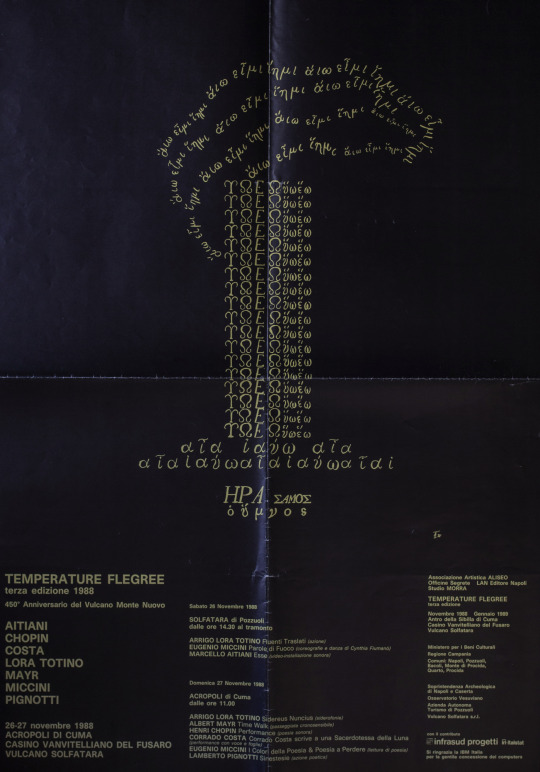
Temperature flegree. Terza edizione, 1988. 450° Anniversario del Vulcano Monte Nuovo, Acropoli di Cuma, Casino Vanvitelliano del Fusaro e Vulcano Solfatara, Lan Editore, Napoli, November 26-28, 1988 [Studio Bibliografico Marini, Bari-Roma]
Featuring: Arrigo Lora Totino, Eugenio Miccini, Marcello Aitiani, Albert Mayr, Henri Chopin, Corrado Costa, Lamberto Pignotti
#graphic design#art#poesia#concrete poetry#visual poetry#sound poetry#arrigo lora totino#eugenio miccini#marcello aitiani#albert mayr#henri chopin#corrado costa#lamberto pignotti#lan editore#1980s
29 notes
·
View notes
Text
VA - Erstes Wiener Krandaubel Opening: Donauwalterinterpretationen (2023)
#va#various artists#compilation#album#matthäus bär#pü#adina camhy#bobby would#francesca centonze#conny frischauf#clemens denk#farbfelde#lukas könig#aras levnis seyhan#michael fischer#power#dj josef#katarina maria trenk#albert mayr#sundl#moya hoke#matija kac#die wutzlinge#afghanistan mon amour#sean derrick cooper marquardt#Bandcamp
2 notes
·
View notes
Text

When you get publicly slapped by 4 surrealist poets because you insulted a guy's historical crush
(translation and context under the cut)
Gallantly Defending Robespierre’s Honour
In the conservative daily paper, Le Gaulois, on March 3, 1923, the journalist and man of letters, Wieland Mayr, expressed his pleasure: there would not be, he wrote, a "vile apotheosis" for "that holy scoundrel" Robespierre. On the other hand, Mathiez had the Surrealists with him. Following the article in Le Gaulois, Robert Desnos (1), accompanied by Paul Éluard (2), Max Ernst (3), and André Breton (4), summoned Mayr in a café and publicly slapped him for insulting the memory of "the Incorruptible."
Why did Mayr get Slapped?
In short: studying history in the 1920s was a messy business, especially when it came to the French Revolution….
To explain why Mayr ended up getting slapped, please allow me to briefly dive into the French Revolution's historiography during the late 19th and early 20th centuries. Keep in mind, that this is a grossly oversimplified version.
Before 1848, it was pretty standard for French republicans to proudly see themselves as inheritors of Robespierre’s legacy. (If you’ve ever wondered why in Les Misérables, Enjolras’ character is very much channeling Robespierre and Saint-Just, here’s your answer!) However, things start to change with the Second Republic.
In 1847, Jules Michelet brought back the negative portrayal of Robespierre as a tyrannical "priest" and leader of a new cult. This narrative helped fuel an increasing dislike for Robespierre, with radicals like Auguste Blanqui arguing that the real revolutionaries were the atheistic Hébertists, not the Robespierrists.
Jump to the Third Republic, and the negative sentiment towards Robespierre was only getting stronger, driven by voices like Hippolyte Taine, who painted Robespierre as a mediocre figure, overwhelmed by his role. This trend was politically motivated, aiming to reshape the Revolution's legacy to align with the Third Republic's secular values. Obviously, Robespierre, the "fanatic pontiff" of the Supreme Being, didn’t quite fit this revised narrative and was made out to be the villain. Alphonse Aulard (a historian willing to stretch the truth to make his point) continued pushing Danton as the face of secular republicanism. Albert Mathiez, one of Aulard’s students, was not having any of it and strongly disagreed with his mentor’s approach.
The general disdain for Robespierre began to shift after World War I. One reason was that people could better appreciate the actions of the Revolutionary Government after experiencing the repression during the war themselves. Albert Mathiez and his colleagues were actively working to change Robespierre's tarnished image. With tensions high, it's no wonder Mayr ended up being publicly slapped by a bunch of poets who were defending the Incorruptible's honour!
Notes
Robert Desnos (1900-1945) was a French poet deeply associated with the Surrealist movement, known for his revolutionary contributions to both poetry and resistance during World War II.
Paul Éluard (1895-1952) was a French poet and one of the founding members of the Surrealist movement, celebrated for his lyrical and passionate writings on love and liberty.
Max Ernst (1891-1976) was a German painter, sculptor, graphic artist, and poet, a pioneering figure in the Dada and Surrealist movements known for his inventive use of collage and exploration of the unconscious.
André Breton (1896-1966) was a French writer, poet, and anti-fascist, best known as the principal founder and leading theorist of Surrealism, promoting the liberation of the human mind.
Source: The text in the picture comes from Robespierre and the Social Republic by Albert Mathiez
79 notes
·
View notes
Text
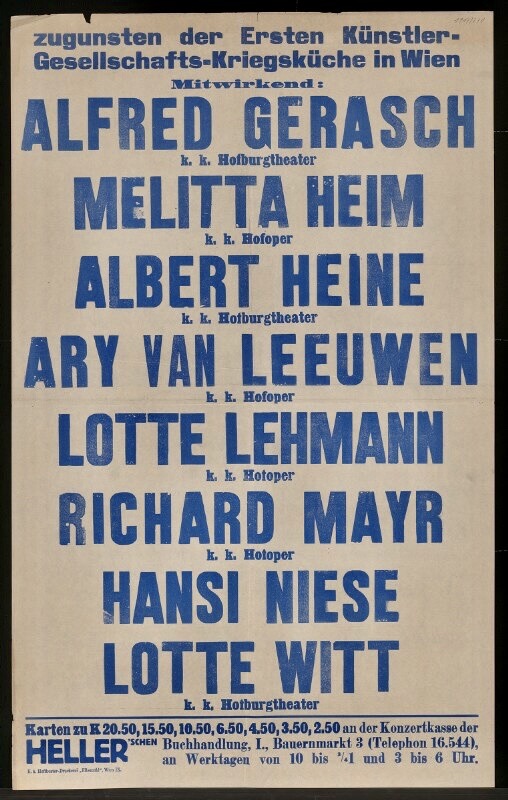
Event in favor of the First Artist Society War Kitchen in Vienna 1914.
Participants: Alfred Gerasch, Melitta Heim, Albert Heine, Ary van Leuwen,
Lotte Lehmann, Richard Mayr, Hansi Niese und Lotte Witt.
Austrian National Library
4 notes
·
View notes
Text
Fwd: Postdoc: Freiburg.TreeAdaptation
Begin forwarded message:
> From: [email protected]
> Subject: Postdoc: Freiburg.TreeAdaptation
> Date: 20 April 2023 at 07:15:41 BST
> To: [email protected]
>
>
> The Professorship of Forest Genetics offers a position for a
> Postdoctoral researcher (f/m/d)
>
> * Application deadline: 05.05.2023
> * Start-date: At the earliest possible date.
> * Fulltime position
>
> *Description*
> In the Eva Mayr-Stihl Professorship of Forest Genetics at the
> Albert-Ludwigs-Universit�t Freiburg, we are investigating the genomic
> and epigenetic basis of adaptation and acclimation in temperate and
> tropical tree species. We jointly analyze genetic and genomic data sets
> with phenotypic and environmental data. Our research is carried out in
> natural populations as well as in greenhouses and climate chambers.
>
> *Project description*
>
> In the DFG-funded Research Unit "PhytOakmeter" we seek to investigate
> patterns and mechanisms of acclimation and adaptation to drought and
> above- and belowground herbivory using a clonal oak as a model system
> (https://ift.tt/U3aCBSQ).
>
> We are looking for a postdoctoral researcher for subproject 1, where we
> will investigate the role of epigenetics for acclimation in the Quercus
> robur clone. In controlled experiments, we will expose clonal oaks to
> combinations of drought and herbivore stress, and investigate the
> reaction of trees at the level of DNA methylation, TE activation, and
> chromatin modifications.
>
> For this purpose, the successful applicant will generate and analyze
> whole genome bisulfite sequencing data, and identify TE activation from
> RNAseq and mobilome sequencing data. Further, chromatin accessibility
> will be studied using ATAC-seq.
>
> The experimental work will be carried out in Ecotron facilities in Bad
> Lauchst�dt and Freiburg. The postdoctoral researcher will support the
> set-up and data collection in the Ecotron in Freiburg. Moreover, she/he
> will work on additional experiments to study epigenetic effects of
> propagation from different bud types and of grafting in experiments in
> greenhouses and climate chambers in Freiburg. In the final phase, the
> successful applicant will be involved in the data synthesis of the
> research unit.
>
> The subproject is tightly integrated into the research unit and will be
> carried out in close collaboration with Prof. Dr. Lars Opgenoorth
> (University of Marburg) and his team.
>
> *Your profile*
>
> You have an MSc and Ph.D. in biology, plant ecology, bioinformatics, or
> similar fields with excellent results. You enjoy science and are driven
> by curiosity. You have experience with experimental work with plants,
> ideally with trees. Research experience in forest ecology, tree
> physiology, genetics, or genomics and explicitly, with the bioinformatic
> analysis of WGBS data and regarding TEs is advantageous. We expect a
> very good knowledge of data handling and statistical data analysis (in R
> and Unix environments) as well as a good publication record. Experience
> with laboratory work (DNA extraction and library preparation) is
> advantageous. You have good communication and team skills, and a
> meticulous way of working.
>
> *Your application*
>
> please check the university website for details on the application
> process: https://ift.tt/ONz2gDf
>
>
> Prof. Dr. Katrin Heer
> Forest Genetics
>
> Eva Mayr-Stihl Stiftungsprofessur f�r Forstgenetik
> Albert-Ludwigs-Universit�t Freiburg
> Fakult�t f�r Umwelt und Nat�rliche Ressourcen
> Bertoldstra�e 17, 79098 Freiburg i. Br., Germany
>
> Phone: +49 761 203 3647
> https://ift.tt/QYqizLO
>
> Katrin Heer
0 notes
Photo
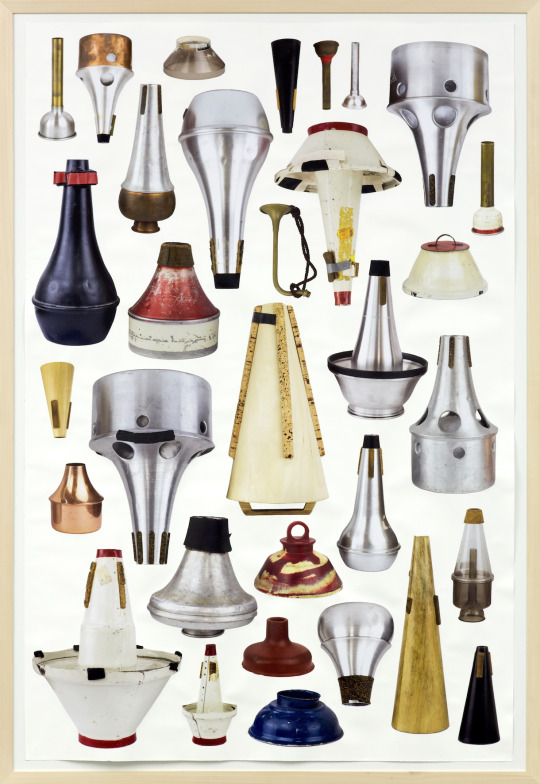
Albert Mayr Morandi Melodien, 150x100cm, Photocollage on paper, 2017
40 notes
·
View notes
Text
The 50 Most Influential Books of All Time
You are what you read. This saying seems an undeniable truth when we picture the impact some books have created on the world. From cracking social boundaries to challenging centuries-old notions, books have played an inimitable role in different segments of human lives. So, which are the books that, along with being a good read, have influenced the way we think? Let’s have a look.

Science
These are the books that pioneered the fundamentals of science taught in schools today. These works left a great and probably a controversial impact on society at the time they were created.
On the Origin of Species, Charles Darwin
The Interpretation of Dreams, Sigmund Freud
Physica, Aristotle
Elements, Euclid
The Meaning of Relativity, Albert Einstein
A Brief History of Time, Stephen Hawking
Silent Spring, Rachel Carson
The Naked Ape, Desmond Morris
Against Method, Paul Feyerabend
The Gene, Siddhartha Mukherjee
What Evolution is, Ernst Mayr
For years, these books are inspiring science enthusiasts to learn newer elements of the universe. That makes it intelligible how millions of students travel abroad to acquire education and stand on the shoulder of giants like Einstein.
Society
Intriguing fiction or rattling real-life stories, many texts have left an unraveling effect on peoples’ views. These books have captured some climactic moments of history and transformed social practices.
The Analects, Confucius
The Republic, Plato
Orientalism, Edward Said
The Diary of a Young Girl, Anne Frank
The Second Sex, Simone de Beauvoir
The Communist Manifesto, Karl Marx and Friedrich Engels
Things Fall Apart, Chinua Achebe
A Vindication of the Rights of Woman, Mary Wollstonecraft
The Prince, Niccolo Machiavelli
Native Son, Richard Wright
The Rights of Man, Thomas Paine
Philosophy
Nothing is absolute in philosophy. While pondering over never-ending questions and theories of the universe, dig into the minds of great philosophers of all time through these books.
The Nichomachean Ethics, Aristotle
On Liberty, John Stuart Mill
A Treatise of Human Nature, David Hume
The Discourses, Epictetus
Naming and Necessity, Saul Kripke
The Art of Happiness, Dalai Lama
Letters from a Stoic, Seneca
Beyond Good & Evil, Friedrich Nietzsche
Meditation of First Philosophy, René Descartes
Critique of Pure Reason, Immanuel Kant
Reasons and Persons, Derek Parfit
Being and Nothingness, Jean-Paul Sartre
Confessions, St. Augustine
Apology, Plato
Literature
With insightful lines and epic characters, these books in literature offer us undeniable elements to remember for a lifetime.
The Complete Works, William Shakespeare
1984, George Orwell
In Search of Lost Time, Marcel Proust
War and Peace, Leo Tolstoy
The Iliad and The Odyssey, Homer
The Canterbury Tales, Geoffrey Chaucer
Beloved, Toni Morrison
One Hundred Years of Solitude, Gabriel García Márquez
The Lord of the Rings, JRR Tolkien
The Picture of Dorian Gray, Oscar Wilde
In a Free State, V. S. Naipaul
I, Claudius, Robert Graves
To Kill a Mockingbird, Harper Lee
Chronicles of Narnia, CS Lewis
All these books have stood the test of time while telling the stories that needed to be told. Authors’ backgrounds and personal experiences influenced many of these works. And did we mention many authors on the list were actually the celebrated alumni from Oxford University? So, if you are aspiring to change the world through words, Oxford maybe your ideal study abroad destination, where you can learn what influenced these writers to create such timeless compilations of human intellects.
Source
7 notes
·
View notes
Photo
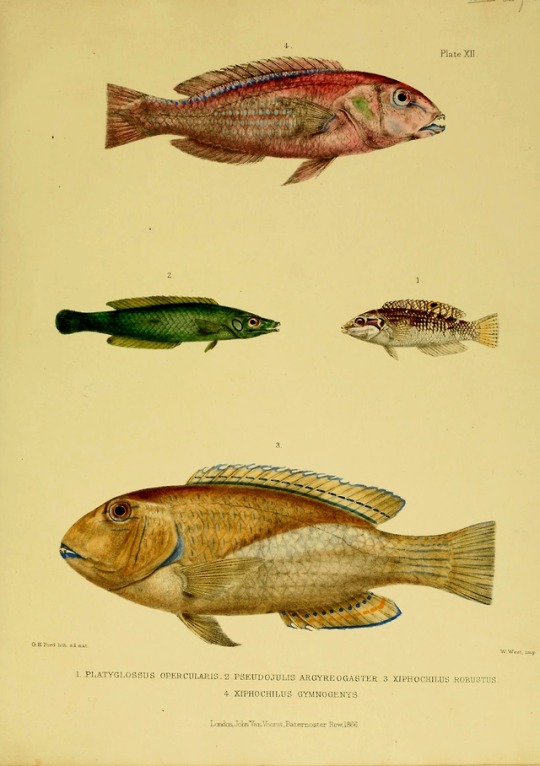
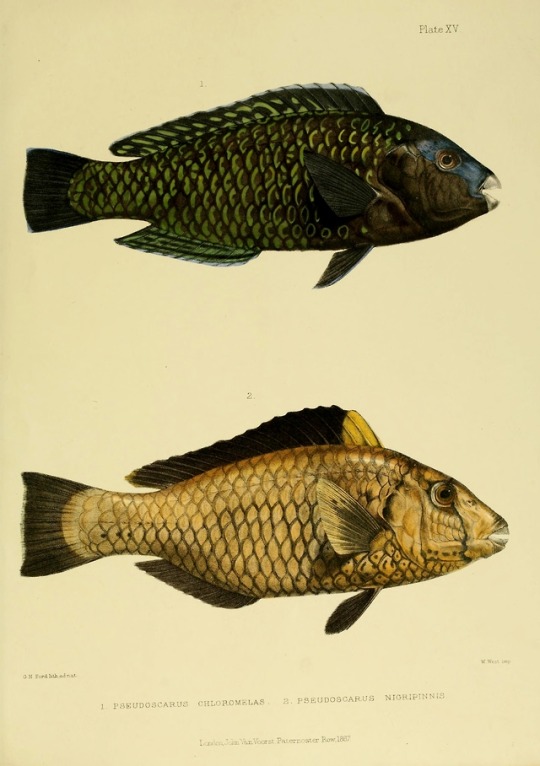
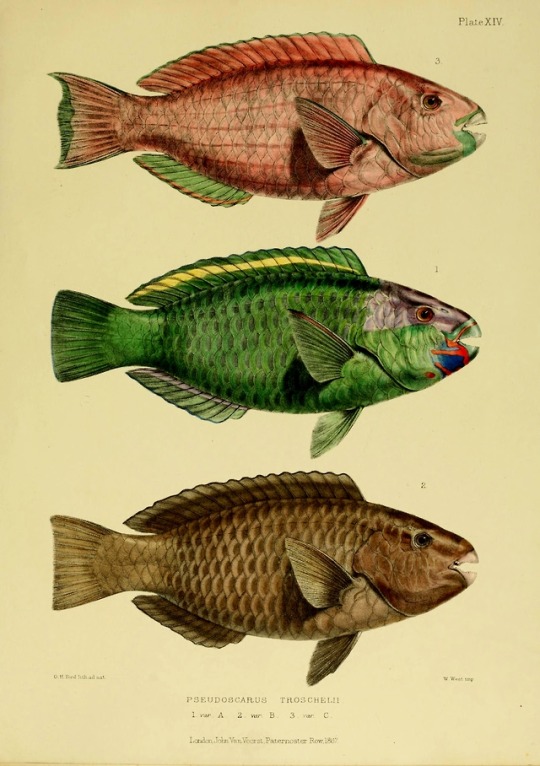
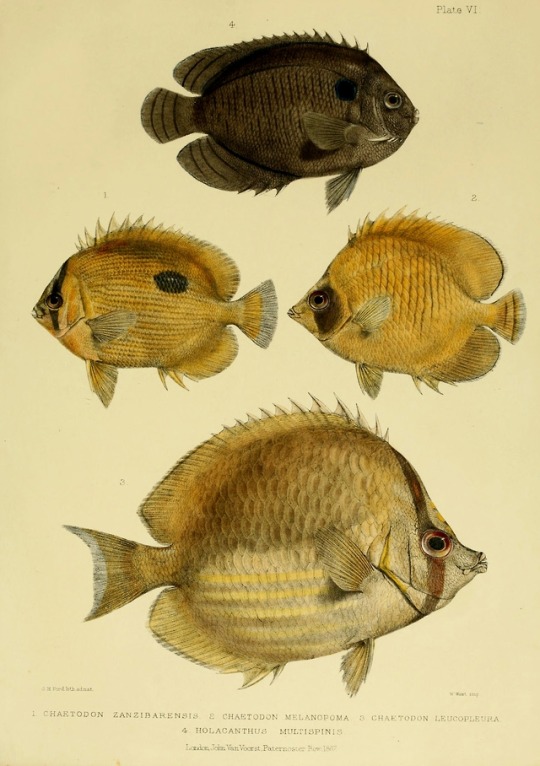
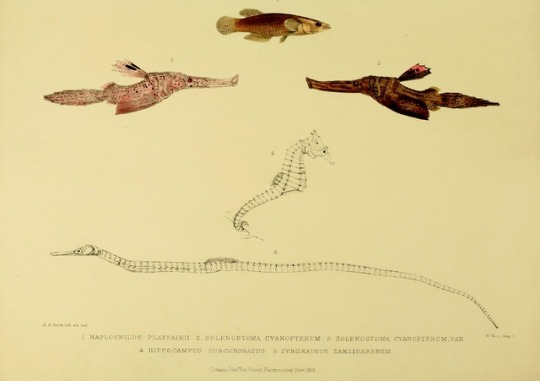
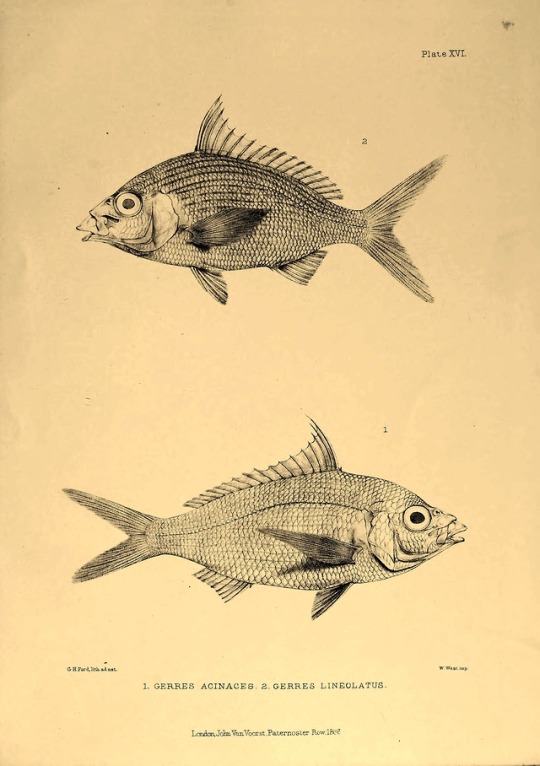

Fishes of Zanzibar: Acanthopterygii
By Playfair, R. Lambert Sir, (Robert Lambert), 1828-1899
Günther, Albert C. L. G. (Albert Carl Ludwig Gotthilf), 1830-1914
Publication info London :J. Van Voorst,1866.
BHL Collections:
Ernst Mayr Library of the MCZ, Harvard University
104 notes
·
View notes
Text
Joseph Mayr-Nusser: Die ganze Wahrheit!
Joseph Mayr-Nusser: Die ganze Wahrheit!
Albert Mayr, Sohn von Josef Mayr-Nusser, will nicht, dass sein Vater parteipolitisch vereinnahmt wird (Leserbrief vom 30. Juni). Was war passiert?
(more…)
View On WordPress
#Albert Mayr#Andreas-Hofer-Bund#Cristian Kollmann#Faschismus#Josef Mayr-Nusser#Nationalsozialismus#Selbstbestimmung#Wiedervereinigung
0 notes
Photo
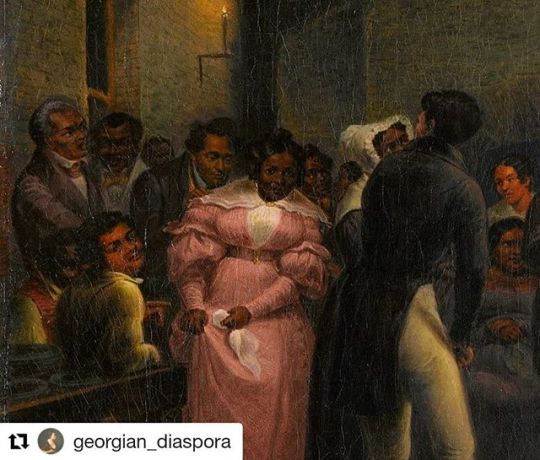
#Repost @georgian_diaspora (@get_repost) ・・・ A fanciful painting of a picturesque wedding reception softly lit by candlelight. The bride dances with a pink floral crown and off the shoulder white dress with matching pink ribbons. She dances, with what must be, the groom, also in a white suit. The scene is almost like a stage production with the participants dancing, posing, talking, looking, playing instruments, or gossiping. For most of history, brides rarely purchased a dress specifically for their wedding day. The bride would typically wear her finest dress to the ceremony, even if it was a dark colour. In fact, brides wore many different colours during this time. Only a few colours were avoided, such as green, which was then considered unlucky. Blue was a popular choice as it represented purity and piety. Examples of western brides wearing white can be traced back as early as 1406, the 1840 marriage of England’s Queen Victoria to her cousin Prince Albert is considered the seminal white dress-wearing occasion. 'Kitchen Ball at White Sulphur Springs, Virginia', Painted by Christian Friedrich Mayr, c.1838. Displayed at @ncartmuseum . . . . #diaspora #history #fashionhistory #fashionstudies #georgiandiaspora #gallery #multiethnic #dresshistory #blackhistory #blackhistories #inclusivehistories #hiddenhistories #diasporichistories #fineart #19thcentury #19thcenturyfashion #portraiture #painting #arthistory #africanamerican #weddingdress #weddingdance #americanhistory #whitesuit #bride #groom #motherofthebridedress https://ift.tt/2LUIDjT Follow #ADPhD on IG: @afrxdiasporaphd
3 notes
·
View notes
Photo





Asthenia No. 07 ‘Cosmology’ 28 April - 5 May at City Surfer Office, Prague
Organised by Amalia Vekri, Alexios Papazacharias & Antonín Jirát
Participating artists: Stano Filko, Irini Miga, Albert Mayr, Katharina Hoeglinger, Chrysanne Stathacos, Lito Kattou, Alexios Papazacharias, Stephen Aldahl, Black Hole Generation, Kostis Velonis, Johana Pošová, Kostas Sachpazis, Hynek Alt, Thanasis Totsikas, Aleksandra Vajd, Jimena Mendoza, Antonín Jirát, Mariana Jirátová, Richard Nikl, Iris Touliatou, Jiří Procházka, Tomas Roubal, Amalia Vekri
2 notes
·
View notes
Photo
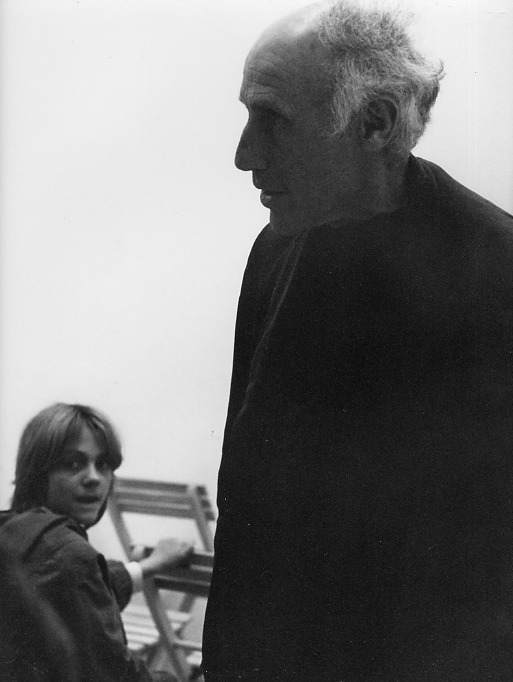
Robert Lax, Zona non profit art space, Firenze, [1975/1985]
#art#poetry#photography#robert lax#maurizio nannucci#paolo masi#mario mariotti#giuseppe chiari#massimo nannucci#albert mayr#alberto moretti#gianni pettena#zona non profit art space#1970s#1980s
20 notes
·
View notes
Video
youtube
Parken Drive In Concerts No.1
organized by Parken; Or, Live in the Park featuring DJs Turnoff point, Isabella Forciniti, Privat and Albert Mayr
Vienna, May 2021
Video: Till Megerle
Sound: The Atrocity Exhibition (JG Ballard and the Motorcar) by Harely Cokliss https://www.youtube.com/watch?v=QRxpZ...
and: Medikamente by Privat https://privat.bandcamp.com/album/ein...
0 notes
Text
day seventeen
April Wrap Up
“Invasion of the Tearling” Erika Johansen
“Gemina” Amie Kauffman and Jay Kristoff
“Blank Spaces” Cass Lennox
“Outcast” Erin Hunter
“Obsidio” Amie Kauffman and Jay Kristoff
“Edith Vane and the Hares of Crawley Hall” Suzette Mayr
“Beneath the Sugar Sky” Seanan McGuire
“Firefight” Brandon Sanderson
“The Seven Husbands of Evelyn Hugo” Taylor Jenkins Reid
“Batman: Nightwalker” Marie Lu
“The Boat People” Sharon Bala
“The Upside of Unrequited” Becky Albertalli
1 note
·
View note
Text
Kendi elimle aylarca uğraşıp birçoğunu tek tek araştırıp özetlerine falan bakıp bir bölümünü farklı ufak listeleri alıp düzenleyip hazırladığım kitap listem <3
1. Schopenhauer - Say yayınları dizisi
2. Schopenhauer - İsteme ve Tasarım olarak dünya
3. Schopenhauer - Aşkın metafiziği
4. Rudiger Safranski - Felsefenin yaban yılları( Schopenhauer biyografisi)
5. Nietzsche - Böyle buyurdu zerdüşt √
6, Nietzsche - Putların Alacakaranlığında
7. Nietzsche - İyinin ve kötünün ötesinde
8. Nietzsche - Ecce homo
9. Nietzsche - Trajedyanın doğuşu
10. Soren Kierkegaard - Korku ve Titreme
11. Soren Kierkegaard - kahkara benden yana
12. Soren Kierkegaard - Ölümcül hastalık umutsuzluk
12. Dostoyevski - Karamazov Kardeşler
13. Dostoyevski - Ecinniler
14. Dostoyevski - Yeraltından notlar
15. Albert Camus - Mutlu ölüm
16. Albert Camus - Yabancı
17. Albert Camus - Defterler
18. Jean Paul Sartre - Bulantı
19. Jean Paul Sartre - Yaşanmayan zaman
20. Jean Paul Sartre - Sözcükler
21. Jean Paul Sartre - Varlık ve hiçlik
22. Irvin Yalom - Nietzsche Ağladığında
23. Irvin Yalom - Bugünü Yaşama arzusu
24. Platon - Sokrates’in savunması ( uzun versiyonunu öneririm) √
25. Platon - Devlet
26. Aristoteles - Poetika
27. Cicero - Yaşlılık üzerine
28. Cicero - Ölüm üzerine
29. Seneca - Teselliler
30. Augustinus - İtiraflar
31. Boethius - Felsefenin tesellisi
32. Epiktetos - Düşünceler ve Sohbetler
33. Fernando Pessoa - Huzursuzluğun kitabı
34. Cesare Pavese - Yaşama Uğraşı
35. L. Ferdinand Celine - Gecenin sonuna yolculuk
36. Baruch Spinoza - Ethika
37. David Hume - İnsanın doğası üzerine inceleme
38. David Hume - Din üzerine
39. Voltaire - Candide
40. J. J. Rousseau - Toplum sözleşmesi
41. J. J. Rousseau - Yalnız gezerin düşleri
42. J. J. Rousseau - Emile
43. J. J. Rousseau -İnsanlar arasında eşitsizliğin kaynağı
44. Sigmund Freud - Psikanaliz üzerine
45. Sigmund Freud - Mutlu olma ihtimalimiz
46. Ludwig Wittgenstein - Felsefi Soruşturmalar
47. Bertrand Russell - Sorgulayan denemeler
48. Peter Singer - Hayvan Özgürleşmesi
49. George Orwell - 1984
50. George Orwell - Hayvan Çiftliği
51. Hermann Hesse - Bozkırkurdu
52. Hermann Hesse - Demian
53. Hermann Hesse - Siddharta
54. Ahmet Hamdi Tanpınar - Saatleri ayarlama enstitüsü
55. Lermontov - Zamanımızın bir kahramanı
56. Aldous Huxley - Cesur yeni dünya
57. Anatole France - Kırmızı zambak
58. Cemil Meriç - Sosyoloji notları
59. Cemil Meriç - Bu ülke
60. Charles Bukowski - Kadınlar
61. Charles Bukowski - Ekmek arası
62. Charles Bukowski - Pis Moruğun Notları
63. Chuch Palahniuk - Dövüs kulübü
64. Chuck Palahniuk - Gösteri peygamberı
65. Jack Kerouac - Yolda
66. Tolstoy - İtiraflarım
67. Tolstoy - Anna Karenina
68. Tolstoy - Savaş ve Barış
69. Tolstoy - İnsan ne ile yaşar
70. Edgar Allen Poe - Seçme şiirler
71. Edgar Allen Poe - Seçme öyküler
72. Eduardo Galeano - Biz hayır diyoruz
73. Eduardo Galeano - Aynalar
74. Elias Canetti - Körleşme
75. Jose Ortega y Gasset - Sevgi üzerine
76. Max Horkheimer - Akıl tutulması
77. George Bernard Shaw - Gülen düşünceler
78. Sabahattin Ali - Kürk mantolu madonna
79. Sabahattin Ali - İçimizdeki şeytan
80. Herakleitos - Fragmanlar
81. Ralph Waldo Emerson - İnsanın görkemi
82. Richard Dawkins - Tanrı yanılgısı
83. Richard Dawkins - Kör saatçi
84. Richard Dawkins - Gen bencildir
85. Richard Dawkins - Ataların hikayesi, hil yayınları
86. Richard Dawkins - Yeryüzündeki en büyük gösteri
87. Jack London - Martin Eden
88. Marcel Proust - Kayıp Zamanın İzinde (2 cilt)
89. Vladimir Jankelevitch - Ölümü düşünmek
90. Slavoj Zizek - Acı çeken tanrı
91. Marquis de Sade - Yatak odasında felsefe
92. Simone de Beauvoir - Denemeler
93. Simone de Beauvoir - Kadın (serisi)
94. Virginia Woolf - Kendime ait bir oda
95. Virginia Woolf - Mrs. Dalloway
96. Michel Foucault - Cinselliğin tarihi
97. Erasmus - Deliliğe övgü
98. Paul Lafargue - Tembellik hakkı
99. Milan Kundera - Varolmanın dayanılmaz hafifliği
100. Franz Kafka - Milena’ya mektuplar √
101. Franz Kafka - Dava
102. Franz Kafka - Aforizmalar
103. Oscar Wilde - Dorian Gray’in portresi
104. Sadık Hidayet - Kör baykuş
105. Carl Sagan - Cosmos (evrenin sırları)√
106. Carl Sagan - Kozmik Bağlantı
107. Carl Sagan - Cennetin Ejderleri
108. Carl Sagan - Milyarlarca ve milyarlarca
109. Alfred Adler - İnsanı tanıma sanatı
110. Walter Sinnott Armstrong - Tanrısız ahlak
111. Orhan Hançerlioğlu - Düşünce Tarihi
112. Nigel Warburton - Felsefenin kısa tarihi √
113. Alain de Botton - Felsefenin Tesellisi
114. Peter Watson - Fikirler Tarihi
115. Emil Michel Cioran - Doğmuş olmanın sakıncası üzerine
116. Emil Michel Cioran - Çürümenin kitabı
117. Ivan Goncarov - Oblomov
118. Mark Daniels - Dünya mitolojisi
119. Gündüz Vassaf - Cehenneme Övgü
120. Victor E. Frankl - İnsanın anlam arayışı
121. Montaigne - Denemeler √
122. Wilhem Reich - Dinle Küçük
123. Karl Marx - Das kapital
124. Karl Marx - Komünist manifesto
125. Stephen Hawking - Büyük tasarım √
126. Stephen Hawking - Ceviz kabuğunda ki evren
127. Stephen Hawking - Zaman ve uzayın doğası
128. Dante Aligiheri - İlahi komedya
129. Charles Darwin - Türlerin kökeni
130. Charles Darwin - İnsanın Türeyişi
131. Andreas Vesailus - İnsan vücudu üzerine 7 kitap
132. Claude Levstrauss - Hüzünlü dönenceler
133. Thomas more - Ütopya
134. Dave Goldberg - Evren kullanma kılavuzu
135. John Fardon - Astronomi bilmeniz gereken herşey
136. William Golding - Sineklerin tanrısı
137. Sun Tzu - Savaş sanatı
138. Edward O. Wilson - Doğanın gizli bahçesi
139. Neil Shubin - İçimizdeki Evren
140. E. Segal - İnsan nasıl insan oldu
141. Steven Weinberg - İlk üç dakika
142. John Gribbin - Derin basitlik
143. Lester R. Brown - Yer kürenin en güzel tarihi
144. Stephen Jay Gould - Pandanın baş parmağı
145. Douglas Adams - Otostopçunun galaksi rehberi
146. Frank Ashall - Olağanüstü buluşlar
147. Lawrance M. Krauss - Hiç yoktan bir evren
148. Eugenie C. Scott - Evrim mi? Yaratılışçılıkmı?
149. Brian Greene - Evrenin dokusu
150. Brian Greene - Evrenin Zarafeti
151. Micheal Shermer - Bilimin sınır bölgeleri
152. Micheal Shermer - İnanan beyin
153. Pico Della Mirandola - İnsanın onuru üzerine
154. Giovanni Boccacio - Decameron
155. Lorenzo Valla - Zevk üzerine
156. Botticelli - Venüs'ün doğuşu
157. Bill Bryson - Hemen herşeyin kısa tarihi
158. Peter Macinnis - 100 keşifler tarihteki en büyük buluşlar
159. Kenneth W. Ford - Göremediğimiz dünya hakkında bilmemiz gereken herşey
160. Goethe - Faust
161. Gogol - Ölü canlar
162. Daniel Coleman - Sosyal zeka
163. Jose R. Dos Santos - Tarının formülü
164. Pierre Bourdieu - Bilim toplumsal kullanımları
165. Pierre Bourdieu - Seçilmiş metinler
166.Richard P Feynman - Fizik yasaları üzerine
167. Machiavelli - Prens
168. Rudolf Steiner - Gizli bilim
169. Champbell, Reece - Biyoloji
170. Ernest Mayr - Biyoloji budur
171. Ormiston Walker - 100 Fen ve teknoloji deneyi
172. Steve Parker - 100 Adımda bilim
173. Peter V. Brett - Göreliliğin anlamı
174. Pascal Acot - Bilim tarihi
175. Jared Diamond - Tüfek, mikrop ve çelik
176. Eddi Anter - Ben benim
177. Emile Zola - Germinal
178. Evrim - Douglas J. ,Palme yayınları
179. Evrimsel Analiz - Scott Freeman, Jon C. Herron, Palme Yayınları
180. Evrim Kuramı - John Maynard Smith, Evrim Yayınları
181. Evrim Atlası - Çağlar Sunay, Peter Barrett, Douglas Palmer, Muzaffer Özgüleş, İş Bankası Yayınları
182. Herkes İçin Evrim, Darwin’in Teorisi Hayata Bakış Açımızı Nasıl Değiştirir? - David Sloan Wilson, Metiş Yay.
183. Charles Darwin: Evrim Devrimi - Rebecca Stefoff, TÜBİTAK
184. Darwin Ne Yaptı? - Öner Ünalan, Papirüs Yay.
185. Dünü ve Bugünüyle Evrim Teorisi - Evrensel Yay.
186. Türlerin Kökeni (Resimli Uyarlama) - Michael Keller, Versus Kit.
187. İçimizdeki Balık - Neil Shubin, NTV Yay.
188. Maymundan mı Geldik? - Kolektif - Bilim ve Ütopya Kitaplığı
189. 50 Soruda Darwin ve Evrim Kuramı - Haluk Ertan, Bilim ve Gelecek Kit.
190. 50 Soruda Yaşamın Tarihi - Deniz Şahin, Bilim ve Gelecek Kit.
191. Dersimiz Evrim - İlhan Akalın, Yurt Kitap Yay.
192. Harun Yahya Safsatası ve Evrim Gerçeği - Bilim ve Gelecek Kit.
193. Evrim Bilimi ve Yaratılış Efsanesi: Neyin Gerçek ve Neden Önemli Olduğunu Bilmek - Ardea Skybrek, Yordam Kit.
194. Evrim ve Yaratılışçılık - Michael Shermer, Varlık
195. Evrim Kuramı ve Bağnazlık - Cemal Yıldırım, Bilim ve Gelecek Kit.
196. Bilim ve Yaratılışçılık - Amerikan Ulusal Bilimler Akademisi Görüşü, Türkiye Bilimler Akademisi (TÜBA)
197. Charles Darwin ve Evrim Tartışmaları - Bill Price, Kalkedon Yay.
198. Yüzyılın Davası - Edward J. Larson, İzdüşüm
199. Seksüel Seçme - Charles Darwin, Onur Yay.
200. Sevişen Beyin: Eş bulma süreci insan doğasını nasıl belirledi? - Geoffrey Miller, NTV
201. Kızıl Kraliçe: Cinsellik ve İnsan Doğasının Evrimi - Matt Ridley, Yapı Kredi Yay.
202. İnsanın Türeyişi - Charles Darwin, Gün Yay. / Onur Yay.
203. Neredeyse Bir Balina - Steve Jones, Evrensel Yay.
204. Evrim Serüveni - Sedat Ölçer, Metiş Yay.
205. Dünya'nın En Güzel Tarihi - Hubert Reeves, Joel De Rosnay, Yves Coppens, İş Bankası Yay.
206. Hayvanların En Güzel Tarihi - Pascal Picq, Jean-Pierre Digard, Boris Cyrulnik, Karine Lou Matignon, İş Bankası Yay
207. Bitkilerin En Güzel Tarihi - Jacques Girardon, Jean-Marie Pelt, Marcel Mazover, Teodore Monod, İş Bankası Yay.
208. 50 Soruda Yerin Evrimi - Mehmet Sakınç, Bilim ve Gelecek Kit.
209. Yerkürenin En Güzel Tarihi - Lester R. Brown, Andre Bahic, Paul Tapponier, Jacque Girardon, İş Bankası Yay.
210. Yaşamın Tüm Çeşitliliği - Stephen Jay Gould
211. Hayvan Zihni: Hayvanlarda Akıl Yürütme ve Problem Çözme Becerisi Üzerine - James. L. Gould, Carol Grant Gould, TÜBİTAK
212. Darwin ve Sonrası Doğa Tarihi Üzerine Düşünceler - Stephen Jay Gould, TÜBİTAK
213. Darwin ve Darwincilik - Patrick Tort, Dost Yay.
214. Darwin ve Evrimin Bilimi - Yapı Kredi Yayınları
215. Kalıtım ve Evrim - Ali Demirsoy, Meteksan
216. Evrimin Öyküsü - Vural Yiğit, Evrim Yay.
217. Köken - Vural Yiğit, Evrim Yay.
218. Gen Çeviktir - Matt Ridley, Boğaziçi Üniveritesi Yay.
219. Genom: Bir Türün Yirmi Üç Bölümlük Otobiyografisi - Matt Ridley, Boğaziçi Üniversitesi Yay.
220. Türlerin Kökeni - Janet Browne, Versus
221. Pandanın Başparmağı - Stephen Jay Gould, Versus
222. Olağandışı Yaşamlar - James L. Gould, Carol Grant Gould, TÜBİTAK
223. İçimizdeki Maymun: Biz Neden Biziz? - Frans de Wael, Metiş Bilim
224. Çıplak Maymun - Desmond Morris, İnkılap Yay.
225. Çıplak Kadın - Desmond Morris, İnkılap Yay.
226. Çıplak Erkek: Erkek Vücudu Üzerine Bir İnceleme - Desmond Morris, NTV Yay.
227. Charles Darwin’in Özyaşam Öyküsü - Francis Darwin, Daktylos Yay.
228. Charles Darwin - Katrin Hahnemann, İş Bankası Kültür Yay.
229. Darwin ve Beagle Serüveni - Alan Moorehead, TÜBİTAK
230. Charles Darwin: Bir Doğabilimcinin Evrimi - Richard Milner, Evrim Yay
231. Biyolojik Evrim Kuramının Arkasındaki Yaşam - Charles Robert Darwin, İş Bankası Yay.
232. Charles Darwin - Alan Gibbons, İş Bankası Yay.
233. Charles Darwin Kimdi? - Deborah Hopkinson, Beyaz Balina Yay.
234. Darwin, Galip Ata - Bilim ve Ütopya Kit.
235. Meraklısına Darwin - Pascal Picq, Yapı Kredi Yay.
236. Bilim İnsanlarımız Darwin’i Selamlarken - Alper Dizdar, Yazılama Yay.
237. Darwin Sizi Seviyor: Doğal Seçilim ve Dünyanın Yeniden Büyülenmesi - George Levine, Metiş Bilim
238. Darwin ve Beagle Gemisi’yle Yolculuğu - Felicia Law, Optimist Yay
239. Üçlü Sarmal: Gen, Organizma ve Çevre - Rihard Lawontin, çev. Ergi Deniz Özsoy, TÜBİTAK
240. Cennetten Akan Irmak: Yaşama Darwinci Bir Bakış - Richard Dawkins, Varlık Yay.
241. Doğanın Gizli Bahçesi - Edward O. Wilson, TÜBİTAK
242. Biyoloji Felsefesi - Elliott Sober, İmge
243. Süreç Kuram ve Kavram Olarak Evrim - Yaman Örs, Kaynak Yay.
244. Biyolojide Diyalektik Yöntem - İ.T. Frolov, Toplumsal Dönüşüm Yay.
245. Darwin Kuramı Seçme Yazılar, Eleştiriler - Charles Darwin, Pan Yay. ve TÜBİTAK
246. Evren ve Evrim - Cihan Türkoğlu, Doruk Yay.
247. Evrim, Bilim ve Eğitim - Üniversite Konseyleri, Nazım Kitaplığı
248. Evrim Adamı - Roy Lewis, Dost
249. Evrim Kuramı Üzerine Sorular - Charles Devillers, Henri Tintant, İletişim yay.
250. İnsan ve Hayvanlarda Beden Dili - Charles Darwin, Gün Yay.
251. Modern İnsanın Kökeni - Roger Lewin, TÜBİTAK
252. Göl İnsanları - Richard Leakey, Roger Lewin, TÜBİTAK
253. 50 Soruda İnsanın Tarih Öncesi Evrimi - Prof. Dr. Metin Özbek, Bilim ve Gelecek Kit.
1K notes
·
View notes
Video
<strong>Margarete Lanner <a href="https://www.flickr.com/photos/truusbobjantoo/">by Truus, Bob & Jan too!</a></strong> <br /><i>Via Flickr:</i> <br />German postcard by Ross Verlag, no. 1745/2, 1927-1928. Photo: Rembrandt, Berlin.
Margarete Lanner (1896–1981) was a German stage and film actress. She appeared in around 30 films during the silent era in a mixture of leading and supporting roles. She had a small part in Fritz Lang's classic Metropolis (1927).
Margarete Lanner (also Marga Lanner) was born Margarethe Helene Langlotz in 1896 in Hamburg, Germany. In 1917, she made her stage debut run in Hanau. In 1919, she returned to her birthplace of Hamburg, where she received her first film contract from the production company Vera-Filmwerke GmbH, which was based there. She made her first film appearances in Brutal (Paul Otto, 1919) and Colombine (Martin Hartwig, 1919) with Emil Jannings. In the latter she played ‘the Bride of the Apaches’. From then on, she easily found her way in the film business, and in the following years she played leading roles in a dozen films for Vera-Filmwerke. These include Der Staatsanwalt/The prosecutor (Paul Otto, 1920) with Werner Krauss, Das Geheimnis der grünen Villa/The Secret of the Green Villa (Philipp Lothar Mayring, 1921), Don Juan (Albert Heine, Robert Land, 1922) featuring Hans Adalbert Schlettow, Heines erste Liebe/Heine’s First Love (Eva Christa, 1922) and Die letzte Maske/The Final Mask (Emmerich Hanus, 1922). In Sklaven der Rache/Slaves of Revenge (Philipp Lothar Mayring, 1921), she even played a double role as two sisters.
Margarete Lanner could count on a devoted regular audience, but Vera-Filmwerke stopped producing films in 1924. She moved to Berlin, where she continued her film career. She played leading roles in unspectacular productions, such as the popular Ufa comedy Die zweite Mutter/The Second Mother (Heinrich Bolten-Baeckers, 1925) with Hans Mierendorff, and Des Lebens Würfelspiel/The Dice Game of Life (Heinz Paul, 1925), starring Frida Richard and Hella Moja. Very spectacular is the expressionist Science Fiction masterpiece Metropolis (1927), Fritz Lang’s epic vision of a futuristic city where workers toil for their domineering overseers. However, Lanner’s part in the film was very small: she played a woman seen in a car and in the Eternal gardens. The following year she made her final silent film, Das Fräulein von Kasse 12/The Woman from Till 12 (Erich Schönfelder, 1928), starring Werner Fuetterer and Dina Gralla. She retired from the film business for a longer time. She married and became Margarete Gräfin Aichelburg. Only in 1936 she made a brief comeback with two films for Euphono-Film GmbH, Die Stunde der Versuchung/The Hour of Temptation (Paul Wegener, 1936) starring Gustav Fröhlich, and Ein Lied klagt an/A Song laments (Georg Zoch, 1936) with Louis Graveure. After that, she disappeared largely from the public eye. She returned to the theatre as an actress and singer under the name of Marga Lanner. She had a commitment to the Municipal Theater of Innsbruck in the 1938-1939 season. In 1940 she narrated the short Austrian documentary Kinderhände – Künstlerhände/Children 's Hands - Artists' Hands (Ulrich Kayser, 1940), her final film credit. Margarete Lanner died in 1981 in Vienna, Austria. She was 84.
Sources: Thomas Staedeli (Cyranos – German), BFI, Wikipedia (German and English) and IMDb.
#Margarete Lanner#Margarete#Lanner#German#Actress#European#Film Star#Cinema#Film#Kino#Cine#Screen#Picture#Movie#Movies#Filmster#Star#Schauspielerin#Darstellerin#Glamour#Allure#Vedette#Vintage#Postcard#Carte#Postale#Cartolina#Postkarte#Postkaart#Tarjet
11 notes
·
View notes